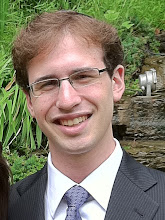Chapters 10-18
Whew! Those were some pretty depressing chapters, to say the least!
Before I ramble on about poverty, however, I must first call your attention to a couple things:
(a) Dickens' vocabulary is once again straight from the "smart-people-pages" of the dictionary, with words like:
1. staunch: loyal: showing loyalty, dependability, and enthusiasm
2. remonstrated: argued strongly: reasoned or argued forcefully with somebody about something
3. sundry: various: assorted but, perhaps for convenience, being considered as a single category or group
4. languid: without energy: lacking vigor and energy
5. circumlocutions: indirect way of saying something: the use of more words than necessary to express something, especially to avoid saying it directly
6. apostrophe (not the definition you were thinking - trust me): address to imaginary person: a speech, especially in the form of a digression, addressing an absent or imaginary person or a personification of an abstract or inanimate entity
(b) Dickens' insights into humanity, though his unique phraseology. Here are a few excerpts:
“'Stop thief! Stop thief!' There is a magic in the sound….Away they run, pell-mell, helter-skelter, slap-dash: tearing, yelling, and screaming: knocking down the passengers as they turn down the corners: rousing up the dogs, and astonishing the fowls; and streets, squares, and courts re-echo with the sound.”
~Dickens is testifying to the roudiness and barbaric attitude of society in the fact that they are all willing to drop whatever they're doing in an instant, in order to chase after a young boy, with bloodcurdling cries of "STOP THIEF!"
“By the bye, bless my soul!—where have I seen something like that look before?”
~This can only be a foreshadowing when Mr. Brownlow says, explicitly, that he recognizes Oliver from somewhere, but can't place him...
“Who, if this were death, would be roused again to all the struggles and turmoils of life; to all its cares for the present; its anxieties for the future; more than all, its weary recollections of the past!”
~This seems to be a phrase with a particularly deep meaning. It is speaking about Oliver in his incredibly when he's recovering from his grave illness and high fever. Dickens is reiterating the fact that no boy would want to wake up from a deep sleep, only to turn and face the real world, which, as has already been stated, is a pretty nasty place--especially for a boy like Oliver Twist.
“It had been bright day, for hours, when Oliver opened his eyes; and when he did so, he felt cheerful and happy. The crisis of the disease was safely past. He belonged to the world again.”
~Despite the last quote, Dickens is stressing the fact that you can't just abandon your problems. Rather, you must take action. Dickens seems to be almost admiriring Oliver's courage for rising to the challenge, waking up and confronting the world, anew. (However, Dickens perhaps adds a note of melancholy when he says that Oliver "belonged to the world," meaning that he was still a "captive" of the Victorian system of orphans. He was still alone.)
I am thouroughly impressed by these chapters. I believe that Dickens is zeroing in on the critical messages of this novel. He's focusing on the fact that Oliver is "tortured" by society, while at the same time, developing the character into a real human being, who has his own feelings, concerns, and sense of moral conscience and decency.
There seems to be a dual theme that's emerging in these chapters. First, the fact that Oliver Twist is still an orphan and still prey to society's picking on him, and thrusting him downward. However, at the same time, there appears to be an element of hope for Oliver Twist - he's developing into a decent person (for example, becoming disgusted when he learns that he's accidently gotten involved in a pickpocketing gang, headed by Fagin). Also, with the addition of Mr. Brownlow, Dickens seems to be foreshadowing that Oliver might have a family alive...somewhere.


<< Home